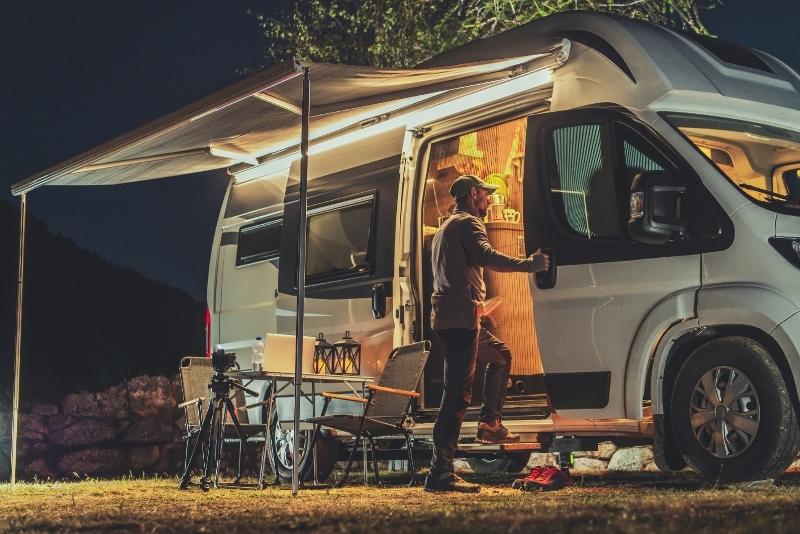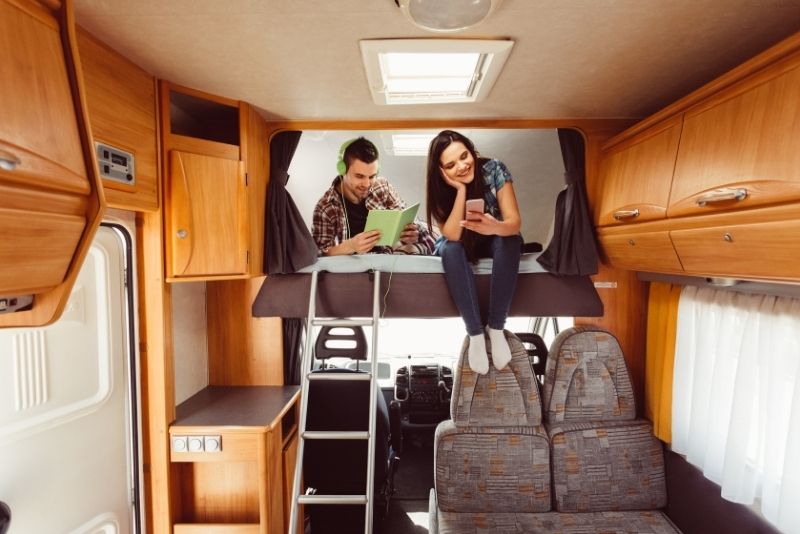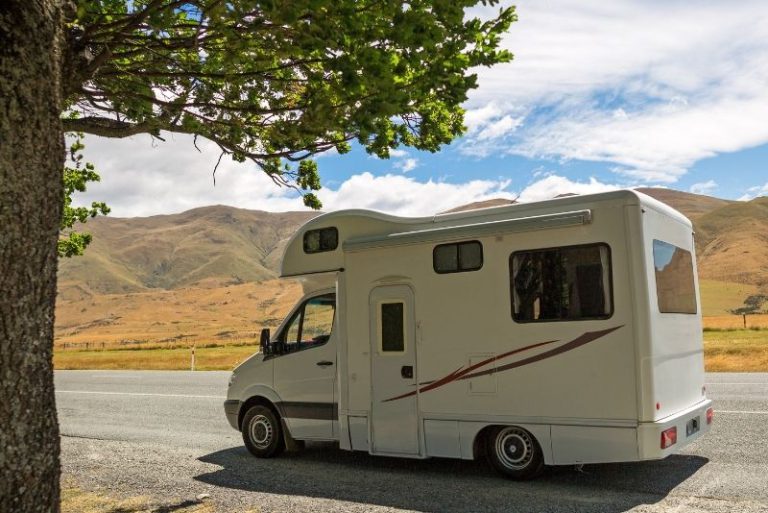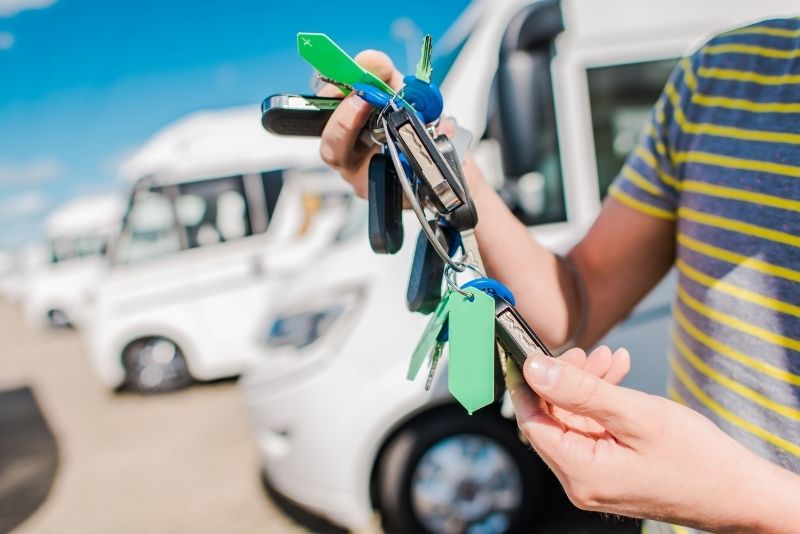We’re heading into motorhome, campervan, and caravan theft high season, now with an influx of motorhomes purchased during the pandemic and lockdown.
The number of people buying caravans and campers has increased by 20%, while ‘caravans for sale’ as an online search is up 200% in the past 12 months!
Recent research undertaken by GPS specialists, Trackershop, has highlighted that new motorhome owners may not be taking the precautions needed to protect their assets. Without tracking, and unlike vehicles, motorhomes are rarely recovered due to identity markings being removed.

In 2020 caravan and motorhome thefts increased significantly with more than £1M worth of stolen vehicles recovered by one tracking specialist alone. The increase in motorhome theft is due to this demand and supply, much like the high-end luxury car market which is specifically targeted.
Thieves are aware of how easy it is to steal a motorhome when it is not in use. Keys are not needed with many vehicles, and computer gadgetry underpinning modern vehicles can be used to bypass ignition systems. Earlier this year, a £35,000 motorhome was stolen and used to ram police in Carlisle. Thankfully the perpetrators are behind bars but, although this one made the headlines, motorhome theft is not an isolated incident. UKCampsite.co.uk lists plenty of stolen motorhomes and campers to keep an eye open for.
Security for your motorhome is an essential part of remaining a happy camper this summer! Whether you’re a newbie, or could use a refresher, we hope these insights may help.
Motorhome security
Motorhome keys
Rule 101: never leave your vehicle keys in your motorhome when it is unattended, as this could invalidate your insurance, and you will not be covered for loss or damage due to theft.
Motorhome security locks
It seems obvious, but the longer it takes for a thief to gain entry, the least likely they are to steal anything. Standard locks, especially on older campervans, are easily broken. Upgrade your locks with a van lock plate to improve the locking system. Alternatively, you could install a deadlock.
Motorhome security devices
Most motorhomes only come with remote locking and an immobiliser as a security system. If your motorhome doesn’t come with one as standard, it makes sense to have one installed. This works alongside your alarm and prevents thieves from driving away in your motorhome. The immobiliser will automatically activate each time you switch off your engine.
Audible deterrents like sounding alarms are great for attempted theft, so if you’re looking to improve your motorhome security, consider installing an upgraded alarm system – and take your security up to the highest level of Thatcham Category 1.
Motorhome GPS system
Trackers are a highly popular security device as they allow you to always monitor your motorhome’s location, via your computer or phone (trackers will need a SIM card to work). The tracker can notify you if doors have been opened or the engine started, making it much easier to alert the police while the crime is taking place.
They also prove very beneficial if your vehicle does get stolen, as there’s a higher chance of it being recovered and returned safely to you as quickly as possible – it’s estimated that they can offer up to a 95% recovery rate.

Trackers are certainly worth considering you keep your motorhome in a storage facility. They enable you to keep a virtual eye on your vehicle and alert you should somebody try to steal it. Although trackers are costly, they do provide better protection. If you are likely to keep your motorhome in storage for some time, consider a solar battery charger to prevent it from draining your battery.
Motorhome safe box
Like cars, motorhomes can be broken into because something valuable is left on display. Avoid a crime of opportunity and minimise what people can see from the outside. From phone chargers to phone cables, tablets or sat-nav, or even cash left on the side, lock it up safely or take it with you when you can.
Motorhome insurance
It’s important to address common questions surrounding motorhome insurance.
Do I need specialist insurance to drive a motorhome or campervan?
Yes. Your car insurance will not cover you to drive a motorhome, and you will use your motorhome for different activities to that of your car, to include sleeping in it, cooking and more. Speak to a broker about the right cover for your experience, make and model, in addition to protecting your contents.
You will also need to check that your driving licence permits you to drive the size motorhome you require. If you passed your test before 1997, you would have a C1 entitlement which allows you to drive a motorhome up to 7,500kg in weight. Those who passed after 1997 will be able to drive a motorhome up to 3,500kg in weight, plus a 750kg trailer.
Do I need insurance while my motorhome is in storage?
If you are not planning to use your motorhome for a while, you can supply the DVLA with a ‘Statutory Off Road Notification’ (SORN) which means that the owner isn’t liable to pay road tax. Vehicles can only be ‘SORNed’ if they are kept off the road, such as on a driveway or on private property, including a campervan storage facility.
Whilst it’s not a legal requirement to insure a vehicle that has been SORNed, motorhomes can become prime targets for thieves during periods of inactivity – and you won’t be covered in the event of theft, flood or fire, or even accidental damage. We would always recommend insuring your motorhome even if your vehicle is not being used.
Most important is your peace of mind while enjoying your adventures, where the only thing you need to worry about is the weather!
If you are considering buying a motorhome and would like to get an idea of the best ways to protect it in advance, or are an owner of a motorhome, camper or caravan, and would like to speak to our specialists, get in touch with your local branch who will be more than happy to answer any questions you may have.


